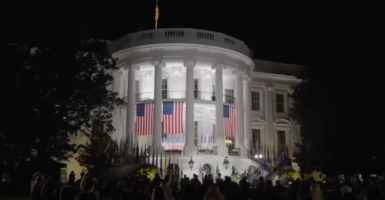Georgia’s House Just Passed A School Choice Bill
Across the nation, parents of school children are beginning to see a shift. This shift is not small by any means. In fact, this shift, as it begins to take hold state after state, may change the landscape of public education. School choice is becoming more tangible and one more state just entered the discussion. Georgia school choice is one step closer to becoming a reality.

Across the nation, parents of school children are beginning to see a shift. This shift is not small by any means. In fact, this shift, as it begins to take hold state after state, may change the landscape of public education. School choice is becoming more tangible and one more state just entered the discussion. Georgia school choice is one step closer to becoming a reality.
Georgia’s House Subcommittee on Academic Innovation recently approved House Bill 60 and House Bill 999, both bills aimed at giving Georgia parents school choice. Together, the bills would require the state to set aside monies for private-school scholarships. Rep. Wes Cantrell, R-Woodstock, introduced both bills.
It’s way past time, really, for Georgia to take a fresh look at the way we educate our children,” Cantrell said via The Georgia Virtue. “Because even when our public schools do an excellent job, which they most often do, there’s always going to be a small percentage of students who do not perform well in a traditional classroom setting for a variety of reasons.” Cantrell filed HB 60 during the last Georgia legislative session, but the bill failed to make it to the House or Senate floor for a vote. He then put together HB 999, calling it the Georgia Educational Freedom Act, and got much better results this time around.
Under HB 60, the bill creates scholarship accounts for military and foster care children, students who have special needs, and children from families who earn 400% below the poverty line. It would also extend vouchers to students whose public schools didn’t offer in-person learning for one semester. The addition of HB 999 adds more students than those specified in HB 60.
Under both proposals, Georgia school choice would become a real thing. The state would provide $6,000 per student each year via a scholarship account so students could attend approved private schools of their choosing. Families could also use these funds for any other approved educational expenses.
Rep. Cantrell only sees positives from these bills moving forward, something he made clear when discussing the matter with Rep. Bee Nguyen, D-89th District as he was introducing the bills. He leaned on the recent public school education system controversies – outrage over critical race theory being taught in schools, remote learning, school pandemic policies – to make his case for the bills. “I submit to you today that if parents had a choice, that all of these issues would take care of themselves,” Cantrell said to the Atlanta Journal-Constitution, “because schools would have to be more responsive to parents if they knew the parents could go to something else.”
Those who support these measures say that this funding of Georgia school choice would save the state money. The U.S. Census Bureau says that the average cost per student in Georgia is $10,205 a year. A study by EdChoice found that Georgia taxpayers saved between $605 million and $1.1 billion from these school vouchers in 2018.
These supporters also point out that the Georgia school choice bills would leave more money per student in public schools. This is based on the fact that students leaving for private schools would only be taking their state funding, leaving local and federal dollars behind for the public schools. They also claim that by allowing for school choice, poorly performing public schools would have to step up their game if they wish to keep those state funds.
Opponents, though, see it much differently. They say Georgia school choice would only be diverting funds from already underfunded schools. They claim that private schools hold no accountability when it comes to state testing or teacher certification. They also point out that those from low-income households would be less likely to take advantage of the scholarship system since they don’t have the means to cover the gap that comes from the scholarship funds and the tuition that private schools charge.
Regardless, Georgia’s school choice is on its way. The next stop for HB 60 and HB 999 will be both chambers of the Georgia General Assembly. After that, they would go to Georgia Governor Brian Kemp for his signature.



